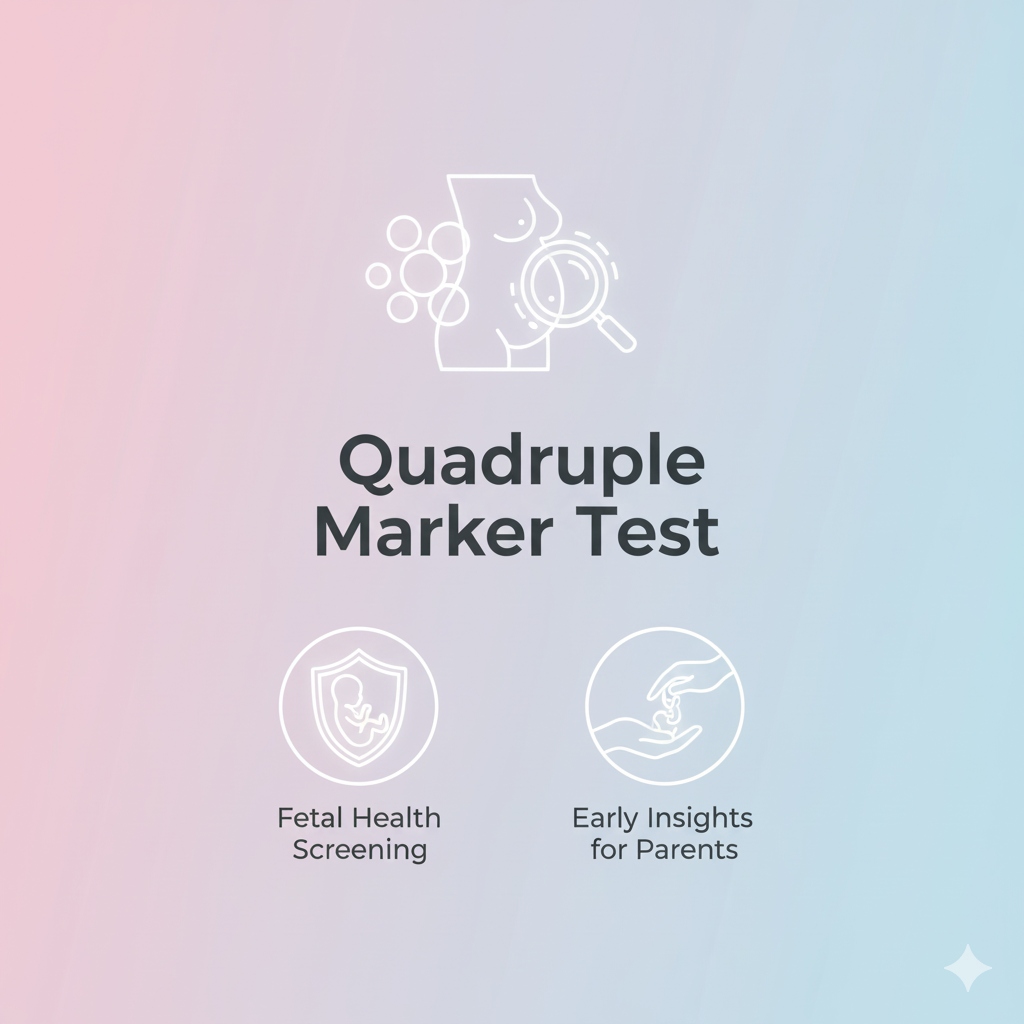
Quadruple Marker Test
Comprehensive prenatal screening for fetal health
₹2500.00
The Quadruple Marker Test typically includes the measurement of four specific substances in the mother's blood, which are:
Alpha-fetoprotein (AFP): A protein produced by the baby's liver. High levels can indicate neural tube defects (like spina bifida), while low levels can indicate Down syndrome.
Human chorionic gonadotropin (hCG): A hormone produced by the placenta. High levels can indicate Down syndrome, while low levels can indicate Edwards syndrome.
Unconjugated estriol (uE3): A hormone produced by the baby's liver and placenta. Low levels can indicate Down syndrome or Edwards syndrome.
Inhibin A: A hormone produced by the placenta. High levels can indicate Down syndrome.
These four markers, when analyzed together and combined with factors like the mother's age, weight, and ethnicity, provide a risk assessment for certain conditions, primarily Down syndrome (Trisomy 21), Edwards syndrome (Trisomy 18), and neural tube defects.
It's important to remember that this is a screening test, not a diagnostic test. A "positive" or high-risk result doesn't mean the baby definitely has a condition, but rather indicates a higher need for further diagnostic testing (like amniocentesis or chorionic villus sampling).